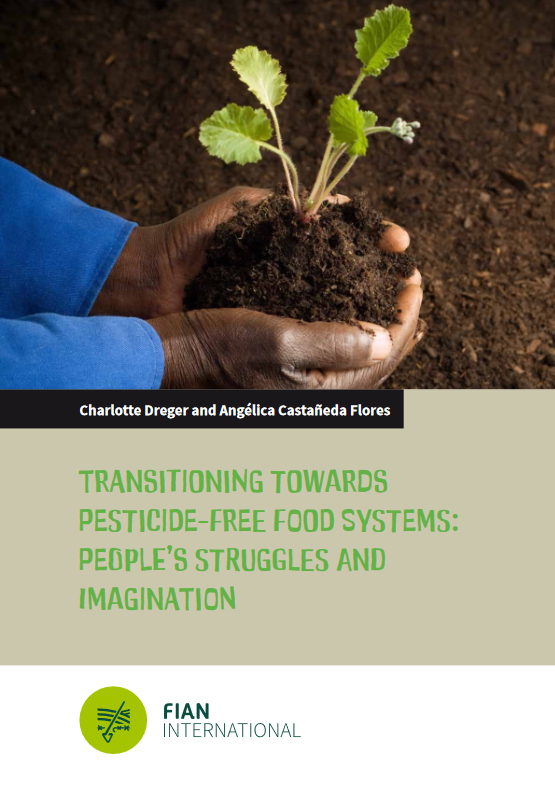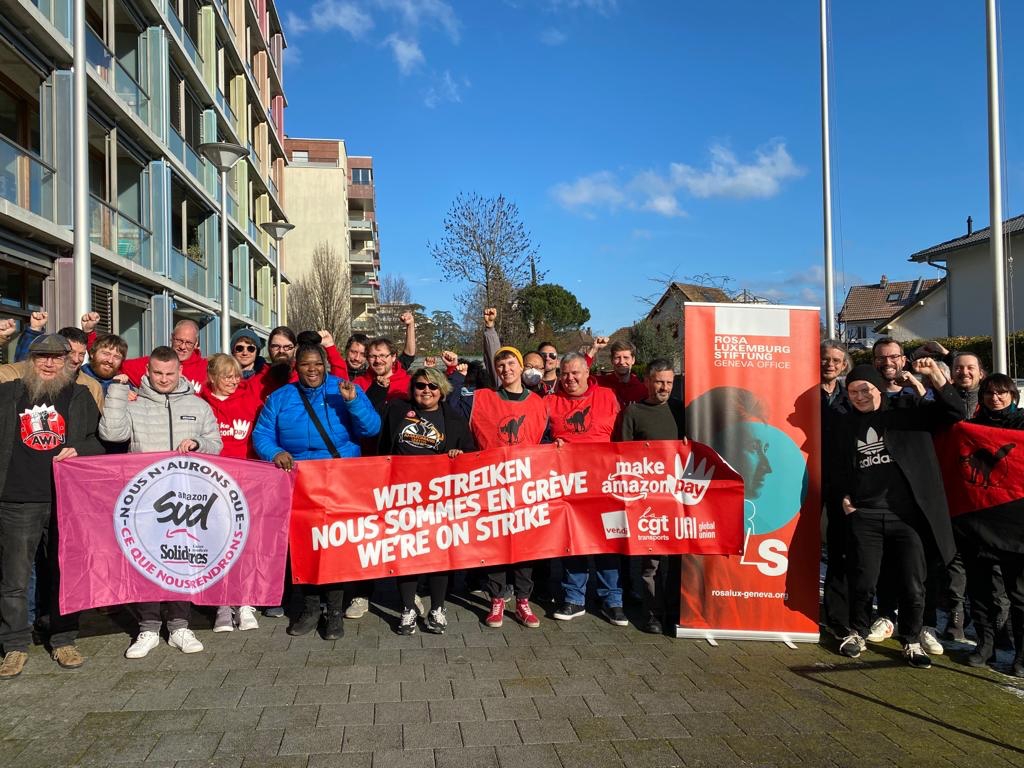Aktie Twitter Facebook Email Copy URL
Study by FIAN International – in englischer und spanischer Sprache!

Pesticides are causing a global human rights and environmental catastrophe. They are responsible for an estimated 200,000 acute poisoning deaths each year. Long-term exposure can lead to chronic diagnoses like cancer; birth defects and reproductive harm; and abnormalities in the neurological, developmental, and immune systems. Runoff from pesticides applied to crops frequently pollutes the surrounding ecosystem and beyond, with deleterious ecological consequences that exacerbate the loss of biodiversity. Pesticides can also harm the biodiversity of soils, which can lead to large declines in crop yields, posing problems for food security.
FIAN’s study investigates how countries are transitioning to agroecology and pesticide-free food systems. By examining cases in India, Brazil, Argentina, France, Spain, Italy, and the United States (US), FIAN’s study offers a clear diagnosis of the human rights and environmental problems resulting from pesticides.
It was sponsored by the Rosa-Luxemburg-Stiftung Geneva office with funds of the Federal Ministry for Economic Cooperation and Development of the Federal Republic of Germany.
It provides a foundation for grassroots movements, local and state governments, and the international community to create pesticide-free societies that can uphold the right to a toxic-free environment for all. It was published in English and Spanish.
Foreword
Pesticides are causing a global human rights and environmental catastrophe. They are responsible for an estimated 200,000 acute poisoning deaths each year. Long-term exposure can lead to chronic diagnoses like cancer; birth defects and reproductive harm; and abnormalities in the neurological, developmental, and immune systems. Runoff from pesticides applied to crops frequently pollutes the surrounding ecosystem and beyond, with deleterious ecological consequences that exacerbate the loss of biodiversity. Pesticides can also harm the biodiversity of soils, which can lead to large declines in crop yields, posing problems for food security.
Exposure to pesticides can have severe impacts on the enjoyment of human rights, including the rights to life, health, and a healthy environment. Failure to adequately control pesticides can also compromise the rights to science, food and nutrition, housing, and information. People may be exposed to pesticides and their residues through food, water, air, or direct contact. Persistent use of agrotoxics in industrial farming is correlated to a range of adverse health impacts, at both high and low exposure levels. 99% of pesticide poisoning deaths occur in developing countries, where health, safety, and environmental regulations, as well as implementation capacities, are weaker.
States have a duty to prevent exposure to hazardous substances. For instance, the right to adequate food and nutrition requires states to ensure access to food that is safe, free from pesticide residues and qualitatively adequate. These duties extend across borders, prohibiting the exportation of pesticides banned in wealthy states to poorer countries. States must also protect persons and groups in vulnerable situations, such as children, workers, women, persons with disabilities, and peasants.
To take on the human rights and environmental challenges posed by pesticides, agroecology is emerging as a holistic response. Agroecology is an integrated approach to agriculture that seeks to optimize the interactions between plants, animals, humans, and the environment to enable sustainable and fair food production based on local knowledge and traditional agricultural practices. This approach can help meet the global needs for food sovereignty and food security in a world facing the three-dimensional crisis of climate change, biodiversity loss, and toxification.
FIAN’s study investigates how countries are transitioning to agroecology and pesticide-free food systems. By examining cases in India, Brazil, Argentina, France, Spain, Italy, and the United States (US), FIAN’s study offers a clear diagnosis of the human rights and environmental problems resulting from pesticides. By anchoring its analysis in the UN Declaration on the Rights of Peasants and other People Working in Rural Areas, FIAN clearly identifies the opportunities and strengths offered by the human rights framework in terms of transitioning away from agrotoxics. In the end, FIAN’s work provides a foundation for grassroots movements, local and state governments, and the international community to create pesticide-free societies that can uphold the right to a toxic-free environment for all.
Marcos Orellana UN Special Rapporteur on the implications for human rights of the environmentally sound management and disposal of hazardous substances and wastes



